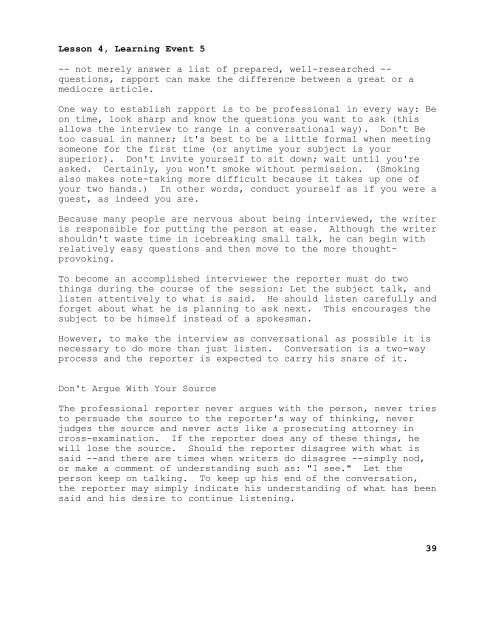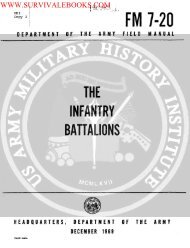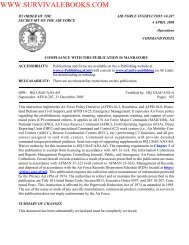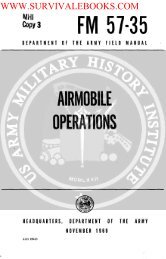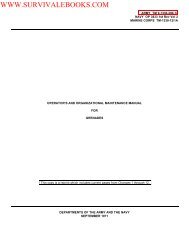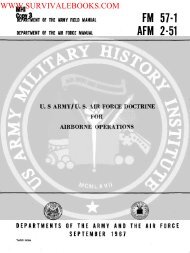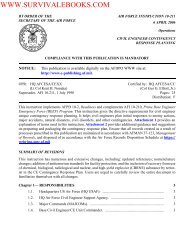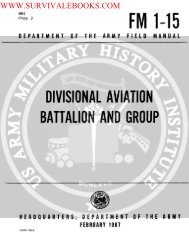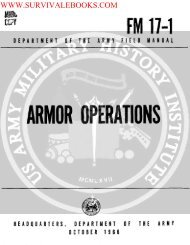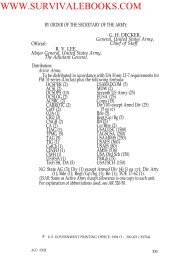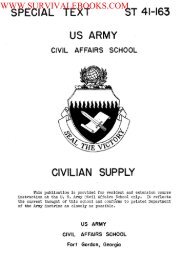US Army Journalist - Course - Survival Books
US Army Journalist - Course - Survival Books
US Army Journalist - Course - Survival Books
- No tags were found...
You also want an ePaper? Increase the reach of your titles
YUMPU automatically turns print PDFs into web optimized ePapers that Google loves.
Lesson 4, Learning Event 5-- not merely answer a list of prepared, well-researched --questions, rapport can make the difference between a great or amediocre article.One way to establish rapport is to be professional in every way: Beon time, look sharp and know the questions you want to ask (thisallows the interview to range in a conversational way). Don't Betoo casual in manner; it's best to be a little formal when meetingsomeone for the first time (or anytime your subject is yoursuperior). Don't invite yourself to sit down; wait until you'reasked. Certainly, you won't smoke without permission. (Smokingalso makes note-taking more difficult because it takes up one ofyour two hands.) In other words, conduct yourself as if you were aguest, as indeed you are.Because many people are nervous about being interviewed, the writeris responsible for putting the person at ease. Although the writershouldn't waste time in icebreaking small talk, he can begin withrelatively easy questions and then move to the more thoughtprovoking.To become an accomplished interviewer the reporter must do twothings during the course of the session: Let the subject talk, andlisten attentively to what is said. He should listen carefully andforget about what he is planning to ask next. This encourages thesubject to be himself instead of a spokesman.However, to make the interview as conversational as possible it isnecessary to do more than just listen. Conversation is a two-wayprocess and the reporter is expected to carry his snare of it.Don't Argue With Your SourceThe professional reporter never argues with the person, never triesto persuade the source to the reporter's way of thinking, neverjudges the source and never acts like a prosecuting attorney incross-examination. If the reporter does any of these things, hewill lose the source. Should the reporter disagree with what issaid --and there are times when writers do disagree --simply nod,or make a comment of understanding such as: "I see." Let theperson keep on talking. To keep up his end of the conversation,the reporter may simply indicate his understanding of what has beensaid and his desire to continue listening.39


